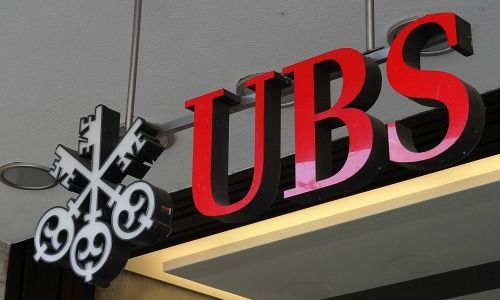UBS: Elephant in the Room
UBS is anchoring its reputation on being the world's largest wealth manager. CEO Sergio Ermotti is upset with investors who he doesn't feel honor this – a denial of the Swiss bank's basic facts.
Andrea Orcel was one of the finance industry's most gifted dealmakers when Sergio Ermotti hired him at UBS in 2012. The two had forged plans for a «new» UBS: for bank should undergo a radical restructuring of its investment bank.
Shortly after, Orcel got to work: he shut hundreds of trading books, cut more than 5,600 jobs, lifted billions in risk-weighted assets from UBS' balance sheet, and transformed from a trading-focused securities unit into an advice-giver and one which would more seamlessly complement UBS' wealth arm.
Incongruous Story
Five years on, UBS is – wait for it – still an investment bank with global ambitions after the deep cuts and much-lauded restructuring.
Investment banking portal «Financial News» (behind paywall) tracked Orcel's journey at UBS, illustrating that he remains the same dyed-in-the-wool investment banker that he was before joining UBS.
And that is a problem for UBS – and for CEO Ermotti: investment banking doesn't fit the story that the bank wants to sell to investors of a huge wealth manager which is well-capitalized, reliable, low-risk and a stable source of revenue.
Ermotti Peeved
UBS' valuation shows this day in and day out: the price-to-book ratio, or the value allotted to a stock by investors in relation to its book value, is shy of 1.2x. Julius Baer stands at 2.4x, while Vontobel reaches 2.4x.
The market is telegraphing that it still sees UBS as a bank with higher risks than those of traditional private banks like Julius Baer, or asset managers like Blackrock. This infuriates Ermotti, who seems to view it as a repudiation of his tireless work to restore UBS' luster after the financial crisis.
«At the end of the day, what we are is not the most expensive…investment bank, we are the cheapest asset gatherer in the world,» the UBS boss complained recently. With respect, some might see it the other way: Ermotti is in denial about the reality of the bank he has lovingly transformed for the last five years.
More Dramatic Step?
Investment banking is still an enormous part of UBS, responsible for nearly one-third of the bank's overall revenue. The unit still also requires a steady dose of costly capital: balance sheet assets still stand at 890 billion Swiss francs.
To be sure, UBS is aware that its investment bank still soaks up much valuable capital – and its effect on return on equity. «Financial News» quotes analysts complaining about UBS' practice of booking considerable equity in its corporate center, instead of in its business divisions, to flatter its investment banking returns in particular.
At the end of last year, UBS pledged to change the way it reports its returns, doling out 25 percent more equity to its investment bank – a step in the right direction.
To be valued as a wealth manager by investors, UBS would have to more drastic action than it has – cut ties to investment banking altogether. Ermotti is unlikely to address this elephant in the room, meaning he will simply have to live with UBS' valuation.



























